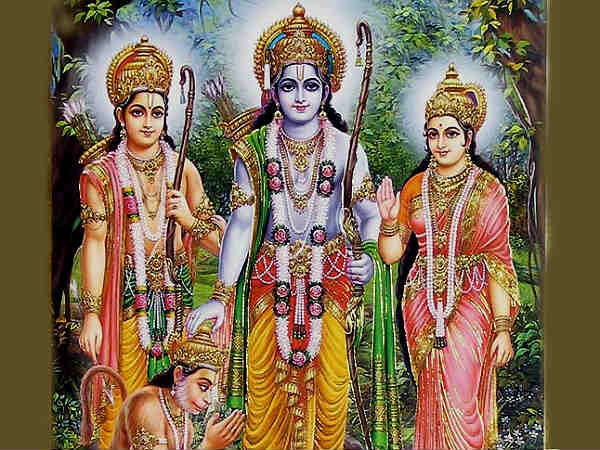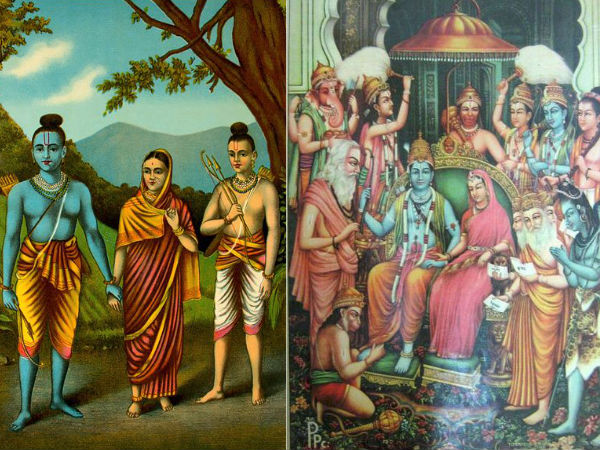Just In
- 2 hrs ago

- 2 hrs ago

- 8 hrs ago

- 11 hrs ago

Don't Miss
- Finance
 Rs 2.50/Share Final Dividend: Record Date In Due Course; Buy The ITC Group Stock?
Rs 2.50/Share Final Dividend: Record Date In Due Course; Buy The ITC Group Stock? - Sports
 Who Won Yesterday's IPL Match 33? PBKS vs MI, IPL 2024 on April 17: Mumbai Indians Escape Last-Ditched Fight by Punjab Kings To Win
Who Won Yesterday's IPL Match 33? PBKS vs MI, IPL 2024 on April 17: Mumbai Indians Escape Last-Ditched Fight by Punjab Kings To Win - Movies
 Do Aur Do Pyaar OTT Release Date & Platform: When & Where To Watch Vidya Balan’s Film After Theatrical Run?
Do Aur Do Pyaar OTT Release Date & Platform: When & Where To Watch Vidya Balan’s Film After Theatrical Run? - News
 BRS Chief K Chandrasekhar Rao Slams BJP, Says K Kavitha's Arrest Is Vendetta Politics
BRS Chief K Chandrasekhar Rao Slams BJP, Says K Kavitha's Arrest Is Vendetta Politics - Automobiles
 Aprilia RS 457 Accessories: A Detailed Look At The Prices
Aprilia RS 457 Accessories: A Detailed Look At The Prices - Education
 Karnataka SSLC Result 2024 Soon, Know How to Check Through Website, SMS and Digilocker
Karnataka SSLC Result 2024 Soon, Know How to Check Through Website, SMS and Digilocker - Technology
 Nothing Ear, Ear a With ANC, Up to 42.5 Hours of Battery Launched; Check Price and Availability
Nothing Ear, Ear a With ANC, Up to 42.5 Hours of Battery Launched; Check Price and Availability - Travel
Telangana's Waterfall: A Serene Escape Into Nature's Marvels
Stories From The Ramayana On Rama Navami

Lord Rama is one of the most revered Gods for the Hindu community. Lord Rama is considered the seventh Avatar of Lord Maha Vishnu. it is said that Lord Rama was born in the Treta Yuga to rid the world of the menace of the demon King Ravana and to establish righteousness among the human beings.
Lord Rama's life, its struggles and triumphs were recorded in a 'Maha Kavya' called the Ramayana. This epic was written by sage Valmiki and extols the virtues of the seventh Avatar of Lord Maha Vishnu. It is through the Ramayana that we know Lord Rama and therefore, the Ramayana is as sacred as 'Rama Nama' to most Hindus.

In many Hindu homes, the Ramayana is an important part of their pooja room and the daily worship is not considered complete until a paragraph of this Holy book is read.
The word 'Rama' is a conjunction of the words 'Ra', which means light and 'Ma', which means me. 'Rama' is therefore nothing but the light within oneself and Ramayana is the story that introduces you to the light within you. As the festival of Rama Navami approaches, let us take a moment to look back at some of the stories from Ramayana that teach us the right way to live.
• The Birth Of Rama And His Siblings
The king Dasharatha was distraught that even though he had three wives, he did not have a son who would take his lineage forward. He yearned for a son and to receive the blessing from the Gods, he performs the Putrakameshti Yagnya. At the end of the Yagnya, Lord Agni arises from the sacrificial flame and gives Dasharatha a bowl of Payasa. It was divided among his wives to be consumed. Soon the queens became mothers to Dasharatha's four sons.
Moral- The King Dasharatha was fated not to have sons. But his faith rewarded him with the blessing of the Gods that rewrote his fate. This story teaches us that faith along with Karma can help us escape the clutches of fate.
• Kaikeyi And Her Demands
Once, King Dasharatha was fatally wounded on a battle field. Kaikeyi rescued her husband and took him to safety. When the King recovered, he promised Kaikeyi two boons that could be asked for at any point of time.
Later, when Rama was to be crowned King, Kaikeyi asked for the fruition of the boons. This was due to the feelings of jealousy brought about due to her maid Manthara. She asked that Lord Rama be exiled for 14 years and her son, Bharata be crowned instead.
Moral: This story teaches us that decisions made in the flow of emotions will not have a good end. It also tells us that the result of jealousy can only be devastation.

• Bharata's Request
When Bharata learned of his mother's deeds, he was heartbroken. He rushed to Lord Rama's side in the forest and requested him to come back and assume the role of the King. He said that he would take up the exile instead of the Lord. When Lord Rama refused, he took the Lord's slippers and placed it on his head. Bharata took the footwear to Ayodhya and placed it on the throne. He ruled the Kingdom instead of Rama as a caretaker, only to hand it over to the Lord when he came back from his exile.
Moral: This story teaches us that even in dire situations, love between relations should not fade. The love between Lord Rama and Bharata shows us how relations should be unclouded by prejudice and irrational anger.
• Shoorphanaka's Approach
Shoorpanaka, Ravana's sister, happened to see Lord Rama while he was in the exile and was completely smitten. When Rama told her that he was married and could not accept her advances, she approached Lakshmana. When Lakshamana too rejected her, she attacked Sita in her fury. In an attempt to save his sister in law, Lakshmana cut Shoorpanakha's nose.
Moral: Acts done in anger can only end bad, be it the case of Shoorpanakha or Lakshmana.
• The Crossing Of Lakshman Rekha
Ravana decided to take revenge for his sister. He drew Lord Rama and Lakshmana away using maricha disguised as a golden deer. He then approached Sita in the guise of a sage asking for alms. When Lakshmana left, he had drawn a ring of protection called the 'Lakshmana Rekha' around the hut where they lived and asked Sita not to cross it. But Sita crossed it, believing Ravana to be a saint and he succeeded in kidnapping her.
Moral: Even the most evil people may look harmless. It is unwise to put blind faith in a person without knowing him first. Another lesson from this story is that even charity (good deeds) done for the wrong person (for the wrong reason) can cause bad results.
• Friendship Of Sugreeva And Lord Rama
Rama met Sugreeva and Hanuman when he was searching for his wife. Sugreeva was the King of the vanaras. Sugreeva presented the Lord the ornaments that Sita had thrown out, as she was being kidnapped by Ravana. He also promised his help to Lord Rama to rescue Sita in return of helping him regain his Kingdom.
Moral: Friendship can be found in the most unlikely forms. An open mind and welcoming arms can help you in many ways.
• The Worship Of Sagara
When Lord Rama came to know that Sita had been taken across the sea into Lanka, he decided to worship Sagara, the god of the oceans to help him cross the sea. He fasted and prayed intently for three days at the shore of the sea but nothing happened. Losing patience, the Lord took up arms and aimed it at the sea to vaporize its waters. As soon as he did that, Sagara arose from the water and promised to help him build a bridge across the seas.
Moral: Just prayer (words) may not help you, as you may be mistaken as weak. Deeds (hard work) must be done to progress to your goal.
• Ravana's Death
At the end of the war, Lord Rama was fighting Ravana. He used his arrows again and again to cut off Ravana's head but it only grew back on. Then, Lord Rama realized that a pot of 'Amrit' was placed in Ravana's belly. Rama then aimed the next arrow on Ravana's belly and this time, the arrow slayed him.
Moral: It is important to look beyond the obvious. It also teaches us that one stroke of efficient work is more fruitful than a hundred strokes that are not as efficient.
• The Crowning Of Rama
At the end of the 14 years, Lord Rama returned to Ayodhya with his wife, Sita and brother Lakshmana. He was crowned the King and ruled for thousands of years in a just and fair fashion.
Moral: No matter what problems and difficulties you may have in your life, the times will change. When Lord Rama himself had to undergo so many problems in his life, it is only natural that we too will have them in our lives, as we are mere mortals. By performing our 'Karma' and following our 'Dharma', we too shall cross the bad times of our lives.
-
 art cultureBook Review: The Liberation of Sita: Volga's Feminist Manifesto
art cultureBook Review: The Liberation of Sita: Volga's Feminist Manifesto -
 yoga spiritualitySimilarities And Differences Between Rama And Krishna
yoga spiritualitySimilarities And Differences Between Rama And Krishna -
 faith mysticismRam Navami 2023: Can You Believe That Jaipur Royal Family Are Descendants Of Lord Rama
faith mysticismRam Navami 2023: Can You Believe That Jaipur Royal Family Are Descendants Of Lord Rama -
 faith mysticismValentine's Day: Unconditional True Love Of Lord Rama And Sita
faith mysticismValentine's Day: Unconditional True Love Of Lord Rama And Sita -
 faith mysticismWhen Lord Sri Ramachandra Sent Food To Swami Vivekananda: Know The Story Behind This
faith mysticismWhen Lord Sri Ramachandra Sent Food To Swami Vivekananda: Know The Story Behind This -
 faith mysticismRama Unleashes His Fury On Varuna The Lord Of The Sea
faith mysticismRama Unleashes His Fury On Varuna The Lord Of The Sea -
 faith mysticismRama And Kama Cannot Coexist: How Did Rama Prove It ?
faith mysticismRama And Kama Cannot Coexist: How Did Rama Prove It ? -
 gardeningWhat Are Topiaries?
gardeningWhat Are Topiaries? -
 faith mysticismHow Hanuman Won The Battle With Lord Rama: Know About The Legend
faith mysticismHow Hanuman Won The Battle With Lord Rama: Know About The Legend -
 faith mysticismStory Of Manthara And Kaikeyi In Ramayana: A Lesson On How Bad Friends Can Affect Your Life
faith mysticismStory Of Manthara And Kaikeyi In Ramayana: A Lesson On How Bad Friends Can Affect Your Life -
 festivalsVivah Panchami 2022: Lord Ram And Sita Vivah Katha
festivalsVivah Panchami 2022: Lord Ram And Sita Vivah Katha -
 faith mysticismRam Navami 2021: Powerful Mantras Of Lord Rama That You Can Chant
faith mysticismRam Navami 2021: Powerful Mantras Of Lord Rama That You Can Chant


 Click it and Unblock the Notifications
Click it and Unblock the Notifications



